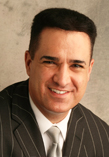© 2017 The Texas Lawbook.
By Jeff Bounds
(March 27) – A federal jury in Marshall on Friday ordered Motorola Mobility to pay $9.17 million for deliberately infringing on a small Plano-based licensing firm’s patents for technology that helps create high-definition voice for cell phones.
The six-woman, two-man jury heard a week of testimony and arguments and then deliberated three-and-a-half hours Friday before handing Saint Lawrence Communications its victory.
The verdict opens the door for U.S. District Judge Rodney Gilstrap to possibly triple the damage award against Illinois-based Motorola Mobility. No court date has been set to argue the issue of damages.
“The jury awarded every dollar we asked for,” says Demetrios Anaipakos, a partner at Houston’s Ahmad Zavitsanos Anaipakos Alavi & Mensing who led Saint Lawrence’s legal charge. “The case involves very dense, complicated technology.”

A spokeswoman for Motorola Mobility, a unit of Asian technology giant Lenovo, says the company does not comment about ongoing litigation. Joseph Drayton, a New York-based partner at Cooley, headed up Motorola’s trial team.
Friday’s win was the latest for Saint Lawrence in patent fights in the U.S. and Germany against seven of the world’s largest cell-phone makers.
Though the upstart has settled four of those cases, Anaipakos says precedent-setting events could be in store in one or both countries in the remaining litigation against Motorola, China’s ZTE, and California-based Apple.
St. Lawrence has previously settled cases against Samsung, LG Electronics, Sony Mobile and HTC, Anaipakos says.
Wesley Hill of Ward, Smith & Hill was lead local counsel in Marshall.
FRAND or Foe
These cases raise questions of interest to German and U.S. courts alike about rules on licensing essential patents for technical standards.
The inventions in Saint Lawrence’s patents make cell phone calls sound more lifelike and are in use by the four major wireless carriers in the United States: Dallas-based AT&T, Verizon Wireless, Sprint and T-Mobile.
Created by researchers at the University of Sherbrooke in Quebec, the patents’ inventions are part of a technology standard, called Adaptive Multi-Rate Wideband, which ensures one piece of technology can talk to another.
Companies that make electronics like cellphones follow these standards so that different vendors’ products all play nice together.
When industry organizations adopt technical standards like Adaptive Multi-Rate Wideband, they require patent owners who participate in the organizations to license their inventions to participating tech vendors on “fair, reasonable and non-discriminatory” terms – or FRAND for short.
“Courts in the U.S. or Germany could use Saint Lawrence’s litigation to make precedent-setting decisions about when FRAND requires patent owners to offer licenses and the obligations potential licensees have at that point,” Anaipakos says.
More Trials Ahead
While it’s unclear how Motorola will respond to last week’s verdict, Anaipakos says he won’t be surprised if the company appeals it.
In a related vein, Motorola is dealing with a separate injunction that Saint Lawrence recently landed against it in Germany which prevents the cell phone maker from using the small firm’s intellectual property there.
Meanwhile, Judge Gilstrap should set a trial date “any day now” in the ZTE litigation, Anaipakos said in a Saturday interview.
“The trial will probably be in the next 60 days or so,” he says.
Gilstrap made news in March by ruling that a jury will be able to hear evidence about the Chinese company’s recent settlement of federal allegations that it violated U.S. sanctions.
The Apple litigation should go to trial in Germany in December and in Judge Gilstrap’s courtroom next January.
The inventions in the Saint Lawrence’s patents helped create “high-definition voice” features found in hundreds of mobile phone models today.
The technology helps listeners on mobile calls to understand accented speech, distinguish between similar-sounding phonetics like “f” and “s,” and understand speakers amid background noise, among other things, according to court records.
That all happens via a Sherbrooke-created improvement to technology called a “codec” which helps cell phones send more information about audio they detect during calls.
When a cell phone hears a person’s voice, the Sherbrooke codec converts the sound waves into the 1s and 0s that computers understand and packages them into bits of data.
Because the codec in the caller’s phone crams more 1s and 0s into each data bit, the person on the other end of the call hears more lifelike sounds when the codec in their phone converts those 1s and 0s back into real-world audio.
Saint Lawrence purchased the patents from a for-profit spinoff of the university, Canada-based VoiceAge Corp
VoiceAge, whose revenue helps fund the university’s research lab, is a partner with Saint Lawrence in the licensing effort, Anaipakos says.
© 2017 The Texas Lawbook. Content of The Texas Lawbook is controlled and protected by specific licensing agreements with our subscribers and under federal copyright laws. Any distribution of this content without the consent of The Texas Lawbook is prohibited.
If you see any inaccuracy in any article in The Texas Lawbook, please contact us. Our goal is content that is 100% true and accurate. Thank you.
